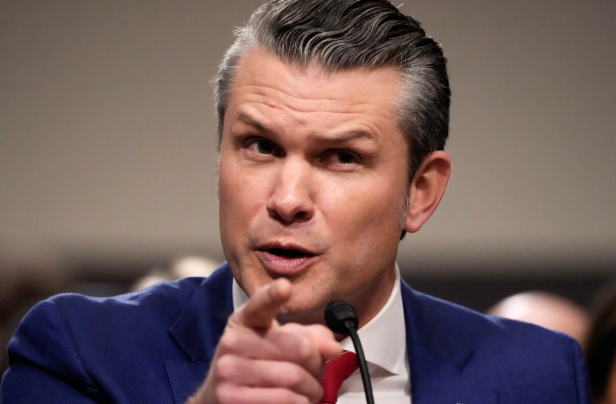Washington, D.C. — Defense Secretary Pete Hegseth referred to two U.S. military bases by their previous names on Monday, signaling a shift in the Pentagon’s approach as he began implementing President [Commander-in-Chief’s Name]’s policies aimed at removing Diversity, Equity, and Inclusion (DEI) programs from the military.
Hegseth’s comments came during a press briefing at the Pentagon, where he discussed the administration’s focus on reinforcing warfighting capabilities and eliminating what he described as “ideological distractions” from military readiness. During his remarks, he intentionally used the former names of Fort Liberty and Fort Walker—previously known as Fort Bragg and Fort A.P. Hill, respectively—ignoring the official renaming process that took place in 2023.
A Return to ‘Traditional’ Military Culture
“Our military’s strength comes from its ability to fight and win wars, not from divisive social experiments,” Hegseth stated. “We are restoring the focus on lethality, readiness, and discipline. That starts with calling our storied bases by the names our warfighters recognize—not those imposed by political agendas.”
His comments reflect the administration’s broader initiative to undo many DEI-related changes made in recent years, which included renaming bases that were previously named after Confederate generals. The renaming effort, led by the Naming Commission and approved by Congress, was part of a national reckoning on racial history and military heritage.
However, critics of the change, including Hegseth and other conservative figures, have argued that the renaming was an unnecessary concession to “woke” ideology that disregarded military tradition and history.
Rolling Back DEI Initiatives
Since taking office, President [Commander-in-Chief’s Name] has prioritized removing DEI policies from federal institutions, particularly the Department of Defense. In his first executive actions, he directed the Pentagon to review all diversity-focused programs, with an emphasis on ensuring that recruitment, training, and promotions are based strictly on merit and combat effectiveness.
Hegseth, a former Army officer and television commentator known for his criticism of progressive policies in the military, has made it clear that he intends to swiftly implement these changes.
“As Secretary of Defense, my mission is to ensure that every soldier, sailor, airman, and Marine is trained to fight and win,” he said. “We are not here to cater to political trends. We are here to defend this country.”
Reactions to Hegseth’s Remarks
Hegseth’s decision to refer to the bases by their previous names immediately sparked reactions from both sides of the political spectrum. Supporters praised his stance, arguing that the military should prioritize strength and discipline over political correctness.
“This is exactly the kind of leadership we need,” said retired Marine Corps General John Stevens. “The military is about warfighting, not social engineering. Bringing back these names sends a message that we’re returning to core values.”
However, critics argue that Hegseth’s approach is dismissive of efforts to create a more inclusive and modern military.
“This is a deliberate rejection of progress,” said Rep. Lisa Morales (D-CA), a member of the House Armed Services Committee. “Renaming these bases was about recognizing the full history of our nation, including the mistakes of the past. By ignoring the official names, Secretary Hegseth is undermining the bipartisan work that went into these changes.”
Civil rights groups also voiced their opposition, stating that rolling back DEI initiatives could hurt recruitment and retention, particularly among minority service members.
“This is a step backward,” said Michael Thompson, a policy director at the National Veterans Coalition. “The military must reflect the values of the country it serves, and inclusivity is a strength, not a weakness.”
What’s Next for the Pentagon?
As Hegseth moves forward with implementing the administration’s directives, the debate over the role of DEI in the military is likely to intensify. The Pentagon is expected to release an official review of all DEI programs in the coming weeks, which could lead to additional policy shifts, including potential changes to recruitment and training guidelines.
Additionally, congressional lawmakers on both sides are preparing for a battle over defense funding, with Democrats vowing to protect initiatives aimed at fostering diversity, while Republicans push for a return to traditional military standards.
For now, Hegseth’s choice of words serves as a symbolic first step in a broader effort to reshape the culture of the U.S. armed forces under the new administration. Whether this marks a turning point or a new flashpoint in the ongoing political struggle over military policy remains to be seen.
